Lewes sex abuser Jonathan Smith's victim feels hope after his jailing
- Published
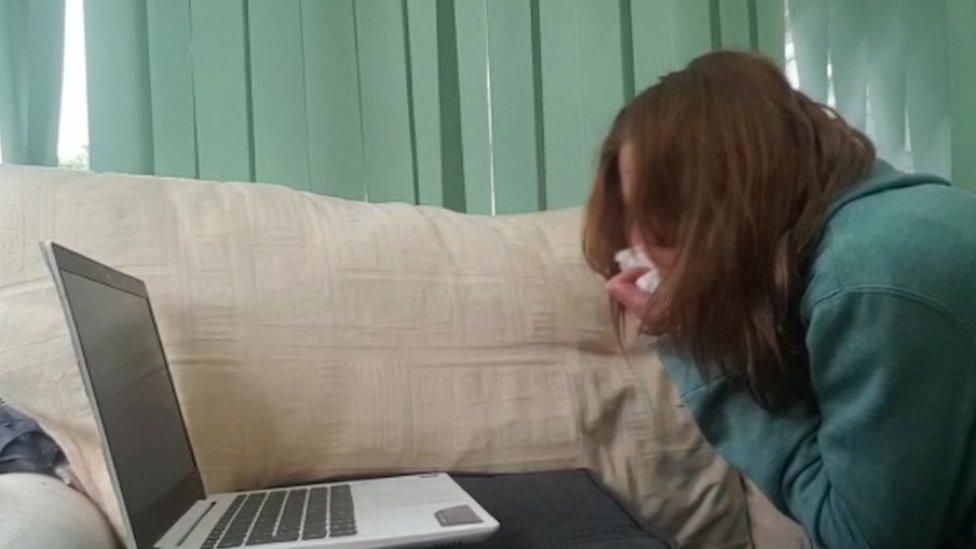
Alice, not her real name, watches the sentencing on Skype
A woman who was systematically abused as a child by a world-renowned music director has gone from "despair to hope" after seeing him finally jailed.
Jonathan Smith, 57, abused her in Lewes, East Sussex, in the 1980s and early 1990s.
He was found guilty of 16 sex offences and sentenced to a 24-year term, on Wednesday.
Alice - not her real name - now feels "empowered" after years reliant on alcohol and psychiatric support.
At the time of the abuse she would also watch Smith's concerts - feeling that he was "magic and powerful" - before her abuser moved to Australia in 1998, becoming the choirmaster of Melbourne Symphony Orchestra.
Because of the coronavirus pandemic, the hearing was streamed via Skype, enabling her to see Smith sentenced - an experience that left her in tears.
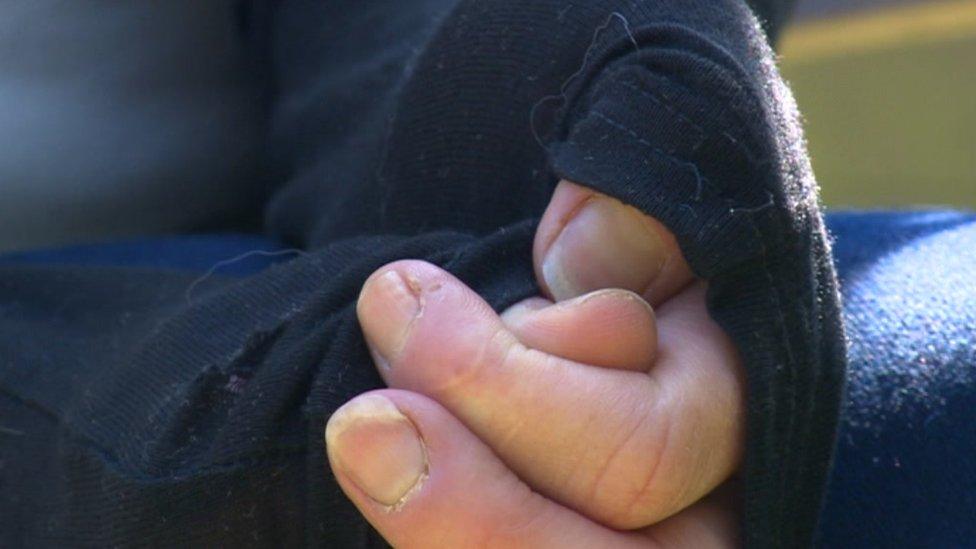
Alice used to watch Smith in concert during the period of abuse
"I was completely shocked," Alice told BBC South East.
"I felt a surge of goodness, 'Wow, I did the right thing, I've been heard'."
Smith began abusing her when she was aged just five.
Drinking from young age
She said: "I remember him... conducting this loud beautiful classical music.
"He seemed magical and powerful."
As well has going on to gain great respect in Australia after leaving East Sussex, Smith built a reputation across the UK, Europe, the US, and New Zealand, Hove Crown Court heard.
Over the years Smith manipulated Alice into believing what he did was right, but as she got older the abuse worsened.
She began drinking from a young age, and had to go to treatment centres 13 times for alcohol detoxification.
She was also sectioned resulting in a number of admissions to psychiatric hospitals.
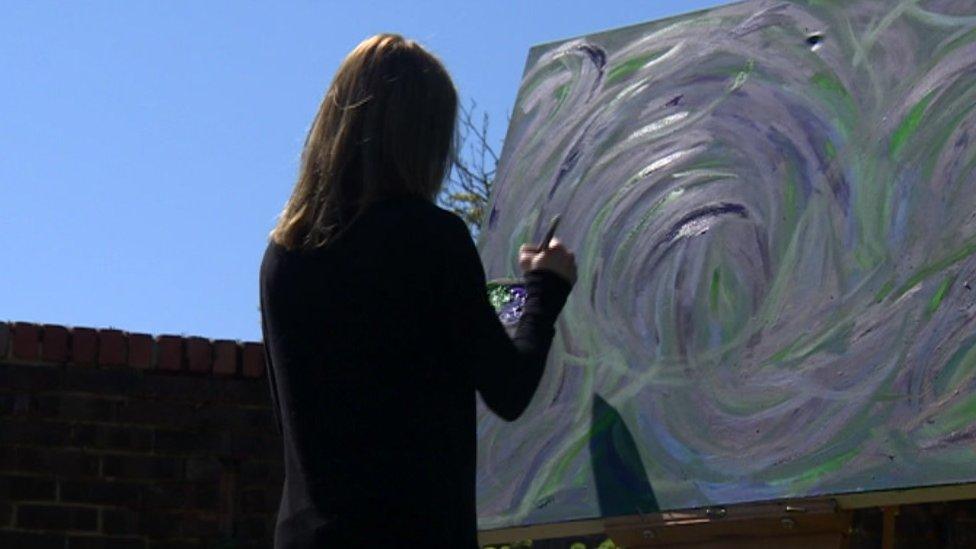
Alice says she went through a range of emotions, including grief for the relationship Smith had convinced her they were in
It was not until 2012, that Alice felt able to reveal to her family what had been done to her.
"Looking back at it, I feel it was disgusting, but at the time I didn't really understand it. I thought it was play.
"It felt wrong... but I was being told it was love.
"When it hit me that was child sexual abuse, it was a shock.
"I'd lived in this fantasy world that we'd been in a relationship... it's been a process of having to understand and unpick it."
'Grief that I wasn't special'
The process to get Smith to trial took five years, including a four-year extradition process from Australia.
In that time Alice said she went through a range of emotions, including grief.
"The grief that I wasn't special, all those beliefs I had... that I was loved, none of that was true.
"That was painful."
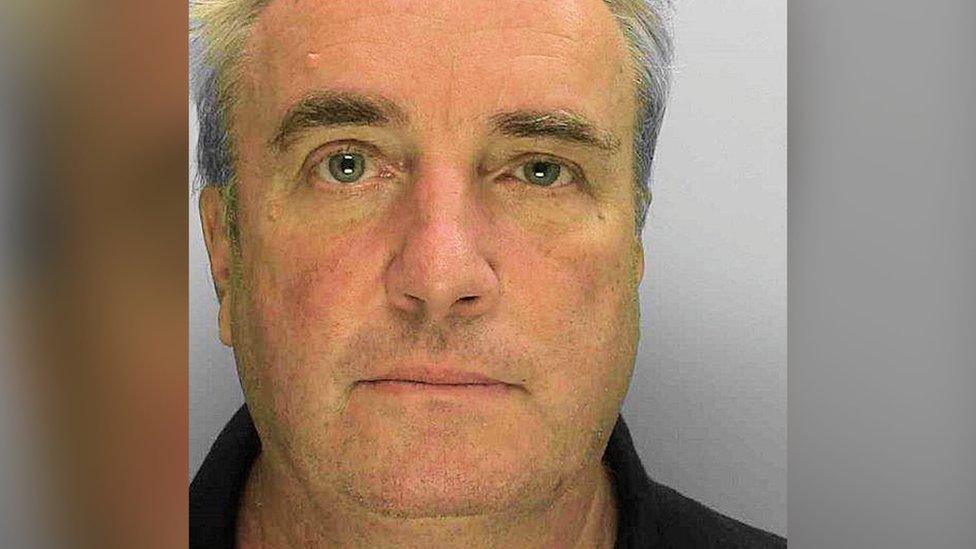
Jonathan Smith, also known as Jonathan Grieves-Smith, had a successful musical career
She was able to give evidence in court before lockdown, and said that gave her strength.
"I do feel empowered, that there is justice and that we got there," she said.
"He cannot hurt any children anymore."
- Published20 May 2020
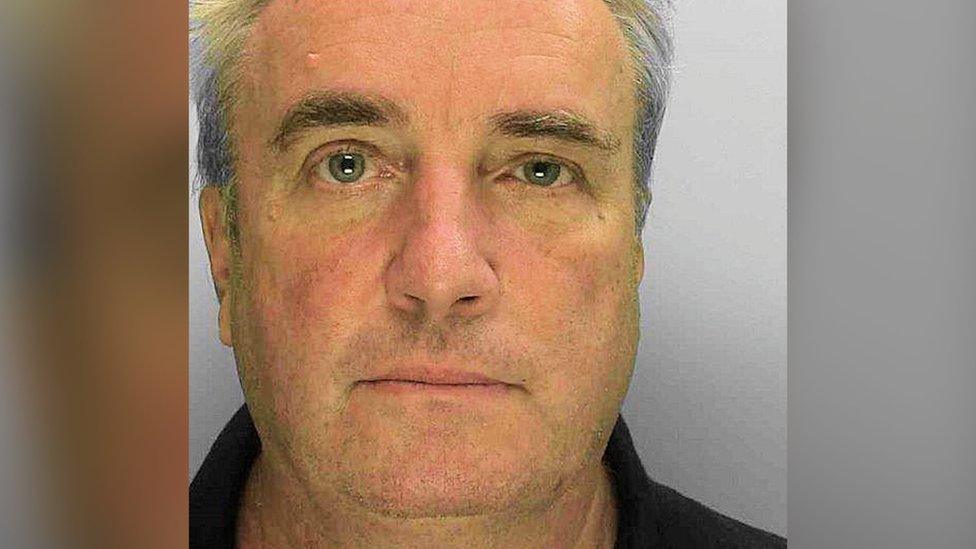
- Published23 July 2014

- Published20 June 2016
